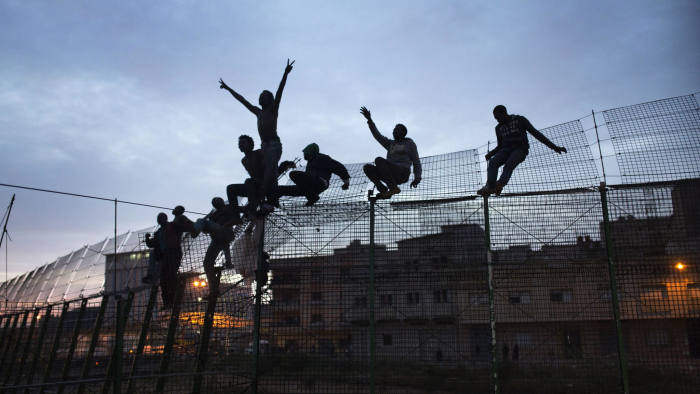Dynamics of Moroccan-French Diplomatic Breakdowns

While agreements were signed at the highest level between Algeria and France, the French thought it was sufficient to send its minister in charge of foreign trade, Olivier Becht, to Rabat for meetings with Moroccan officials as part of attempts to overcome a row that has gone on for several months.
It is was intriguing to see the French withdraw their ambassador to Rabat and then assign her to a mission at the European Union’s external relations department, meawhile tasking a minister in charge of an economic and commercial portfolio with resolving differences with Rabat. One wonders if the French were not, by doing this, insulting the intelligence of decision-makers in Morocco.
Such behaviour can only be a new step towards further deterioration of France’s relations with Rabat at a time when the crisis between both countries seems impossible to fathom or understand.
In a move that reflects the state of these relations, Morocco’s King Mohammed VI recently appointed Rabat’s ambassador to France, Mohamed Benchaaboun, to be general manager of the “Mohammed VI Investment Fund”, only a year after his appointment as ambassador in Paris.
Now he will be at the helm of an institution of great importance and significance, personally supervised by the king.
Morocco has emphasised more than once that what can upset its relations with others is the failure to understand its priorities, foremost of which is its sovereignty over its Sahara, as the criterion by which its foreign relations are determined.
Paris was supposed to authoritatively clarify its position on the issue of the Moroccan Sahara, but it has not.
All indications point to France bringing about a further deterioration of its relations with Morocco. At the beginning of this October, France was planning to put the issue of the Moroccan Sahara on the agenda of the ninth summit of the leaders of the European Mediterranean countries “Euromed”. It justified the move, according to media close to the Elysée Palace, by citing the potential repercussions of the conflict on the energy and gas supply crisis in Europe.
France sees the Moroccan investment presence in the west and east of the African continent as a threat to its interests. Paris did not understand the measures taken by Morocco to strengthen its own economic presence and end competitors’ dominance in key sectors such as banking, industry and services.
The Danone Group, one of the most prominent French brands specialising in the sale of dairy products, is preparing to withdraw from the Moroccan market, after decades of controlling the industry.
For all practical purposes, communication between the two countries has been minimal. This is an indisputable fact.
The other reality is that Emmanuel Macron is obsessed with Algeria. He believes that he will succeed in tidying up French-Algerian relations and is willing to sacrifice good understanding with Morocco in the hope of obtaining better terms from the Algerian regime which serve the interests of France.
Rabat did not react to a provocative and undiplomatic statement by Macron when he said that he would visit Morocco, without prior coordination or agreement. Morocco wished him good luck.
Today, Morocco is withdrawing its ambassador from Paris, because it needs him for major social and economic projects. It could not waste the time and energy of a highly-qualified national cadre in sub-level discussions with French officials whose interests always come first.
In his speech on the anniversary of the revolution of the King and the People last August, King Mohammed praised countries such as Germany, the Netherlands, Spain, the United States and Romania for their positive positions on the issue of the Moroccan Sahara, without mentioning France at all. Morocco linked any economic partnerships to an explicit position in support of Morocco’s territorial integrity.
Olivier Bech, the minister in charge of foreign trade, as a representative of the French state, should be concerned by the king’s speech, which was addressed to the kingdom’s partners whose positions regarding the kingdom’s sovereignty over its Sahara are ambiguous.
Diversification of international partners at the economic, political and security levels has become a tenet of Moroccan policy and this is what troubles the French state with all its institutions. It is clear that France does not want to abandon the desire for exploitation which has driven its actions since the days of occupation.
Morocco is no longer focused on France, but rather on diversifying its political and strategic relations and friendly relations. It recently succeeded in persuading its Spanish neighbour to change its position regarding the Sahara and to distance itself from France’s policies in this regard.
France, which is creating a toxic environment by denying entry visas to doctors, businessmen, musicians and politicians, has reason to be concerned about its waning cultural and linguistic influence, as more students enrol in the British Council to learn English. Families with financial means prefer to send their children to study in the United States, England and Canada.
Recently, France wanted to involve Rabat in the deportation of the French imam Hassan Echoessen to Morocco, which refused to accept him, casting an extra shadow over the bilateral relationship.
Moroccan consulates have no problem with the return of illegal migrants, when they are Moroccan nationals. But many of these migrants do not possess official documents and not all of them are Moroccan.
Paris most certainly recognises recognise the help provided by Moroccan security agencies in the fight against terrorism. This assistance has previously saved it from street bloodbaths. France should ask itself about the fate of this cooperation today considering the intransigence of its decision-makers.
Have relations between the two countries actually reached the point of no return?
Only the coming days will tell.
Mohamed Alouia for The Arab Weekly
Want to chase the pulse of North Africa?
Subscribe to receive our FREE weekly PDF magazine













